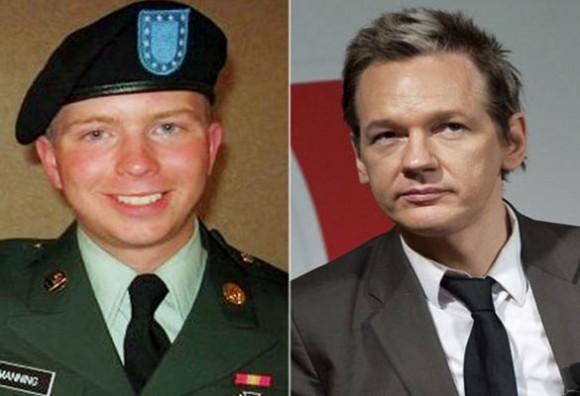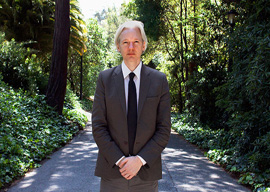We must hang together, gentlemen…else, we shall most assuredly hang separately.
—Benjamin Franklin
When a journalist disappears in Russia or is murdered in Iraqi Kurdistan, his or her colleagues in safer climes stand up to be counted. No one should be killed, tortured, or imprisoned for publishing information or opinions that the powerful find inconvenient. Organizations such as the Committee to Protect Journalists, Article 19, and PEN regard it as their duty to defend writers’ and publishers’ rights, as
PEN famously did for Arthur Koestler against Nazi tyranny in the 1930s.
Index on Censorship, a publication with an honorable pedigree, came into existence to publish the samizdat articles and stories of writers who risked the gulag for expressing themselves.
In journalism schools, they teach aspiring reporters it is their duty to ferret out information the state and other power centers conceal that affects ordinary people’s lives. Bringing information to the governed about their governors is the breath of democracy, the exposure that animates liberty’s spirit, and a necessary check against the world’s imbalances in wealth and power. When Upton Sinclair revealed the way meat was packaged in America in
The Jungle, when Lincoln Steffens told the truth about municipal government corruption, when Ida Tarbell exposed the Standard Oil Company to public scrutiny, when I. F. Stone published the truth behind the Gulf of Tonkin lies that Lyndon Johnson used as an excuse to escalate the war against Vietnam (the Weapons of Mass Destruction of its time), when Seymour Hersh reported the American massacre at My Lai, when Ray Coffey of the
Chicago Daily News broke the story of America’s illegal bombing of Laos, did their colleagues rise as one to defend them?
The hell they did. A few stood with the investigators, but most condemned them. Hearst columnists and other guardians of the public’s right to ignorance railed against the muckrakers for betraying American values. Who could be against Rockefeller and Standard Oil apart from a traitor? The good burghers of the popular press turned on them like a pack of hounds for questioning the wisdom of duly (albeit corruptly) elected rulers and daring to publish documents that God had deigned as comprehensible only to a bureaucratic inner circle.
“I understand why the Pentagon, the State Department, and the White House hate Assange and WikiLeaks. He broke into their cozy little circle of lies and turned on the lights.”
Journalistic guard dogs of power, the most likely hacks to climb the ladder for the Purina Dog Chow of corporate-media op-ed columns, talk shows, and editorships, have turned against WikiLeaks. Julian Assange has committed the crime for which we, from the safety of time’s passage, honor Steffens, Tarbell, Stone, and Hersh. It is no surprise that a pseudo-journalist such as Bill Kristol at
The Weekly Standard calls for Washington to employ “various assets to harass, snatch or neutralize Julian Assange and his collaborators.” But it is more difficult to excuse the distance that real journalists, many of whom published the documents and videos that WikiLeaks made available to them, are putting between themselves and Assange. The Society of Professional Journalists, the National Association of Broadcasters, and
The New York Times’ opinion pages have run for cover as fast as politicians during a police raid on a whorehouse.
The New York Times, along with
The Washington Post, had the honorable distinction of publishing the Pentagon Papers. They received those documents from Daniel Ellsberg, who was pilloried in his time just as Assange is today. The Nixon Administration, in a precursor to the Watergate break-in, raided his psychiatrist’s office and circulated stories that Ellsberg was insane. The argument was not unknown in the Soviet Union: If you are against us, you must be crazy. Now they are turning on Assange over his sex life, his alleged imperiousness, and his supposed recklessness.
I understand why the Pentagon, the State Department, and the White House hate Assange and WikiLeaks. He broke into their cozy little circle of lies and turned on the lights. We’ve seen the amusement of helicopter pilots and gunners as they blew away journalists in Iraq. We’ve read how Hillary Clinton illegally suborned UN diplomats to spy on their colleagues. We’ve had a look into secret discussions where the US tried to persuade the Japanese to shut down the anti-whaling Sea Shepherd Conservation Society. We have read that Israeli border guards have been trying to shake down American companies such as Coca-Cola, Procter & Gamble, and Westinghouse for
bribes to let them send their products into the Gaza Strip.
We have seen all of this, while Assange’s critics tell us (1) nothing he has revealed is of any significance and (2) what he has revealed is so significant he must be prosecuted or terminated with prejudice. Let the government fight its corner, fair enough. But does the press, which collaborated with WikiLeaks in bringing so much information to public scrutiny, need to condemn him? In the battle between the state and the free press, I stand with the free press.
This is an easy decision, and I made it well before I met Assange last weekend. He seemed to me to be neither arrogant nor deceptive. He is, however, single-minded and determined to fight for his corner. He has accepted his predicament with good grace, having endured nine days in Wandsworth Prison in solitary confinement. The terms of his bail, while he awaits a possible extradition to Sweden for alleged crimes that carry no sentence other than a small fine, require him to remain inside the Norfolk farmhouse of his friend Vaughan Smith, a brave former Grenadier Guards officer and combat cameraman. Julian may leave the house only for daily visits to the local police station. When we wanted to smoke outside, in deference to Pranvera Smith’s understandable concern about the air around her beautiful little daughters being fouled by tobacco, Julian had to stand inside the doorway. I was free to pace the garden with my cigar, the absurdity of which was obvious to us both.
He spends most of his time working on WikiLeaks and preparing his legal defense, showing no sign of the tension that would break most of us. But making this a battle about his personality misses the point: The issue is freedom to publish information without fear of intimidation, imprisonment, and death. Where are my colleagues? Many have stood up honorably to defend him and to guarantee his bail in Britain. Others have turned on him, including the two English-language newspapers (
The Guardian in London and
The New York Times) that published documents they could have obtained only from him. It was ever thus, as Julien Benda
reminded us in
La Trahison des Clercs:
Our age has seen priests of the mind teaching that gregarious[ness] is the praiseworthy form of thought, and that independent thought is contemptible. It is moreover certain that the group which desires to be strong has no use for a man who claims to think for himself.
During America’s war in Vietnam, Noam Chomsky referred to the journalistic and academic defenders of the aggression as the “secular priesthood.” Their heirs worship at the same altar of power, even when it means sending one of their own to prison for a “crime” they only pretend to commit: speaking truth to and about power.









